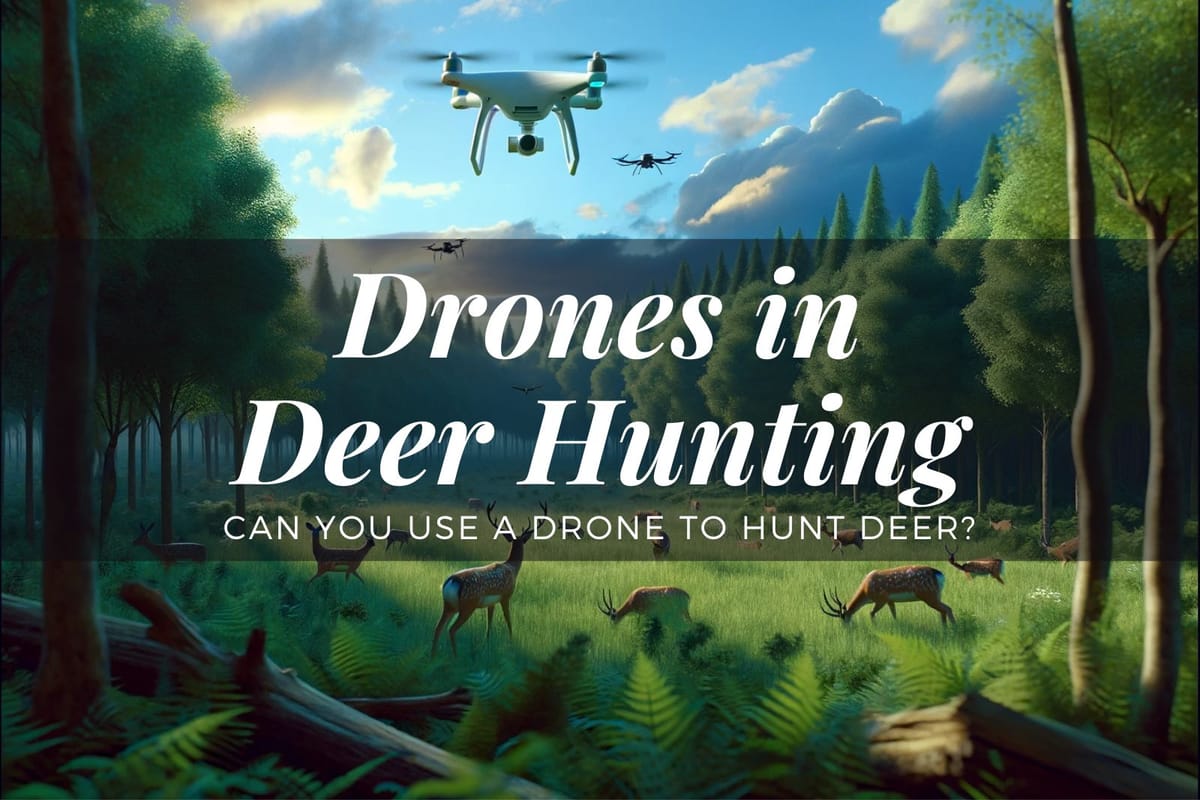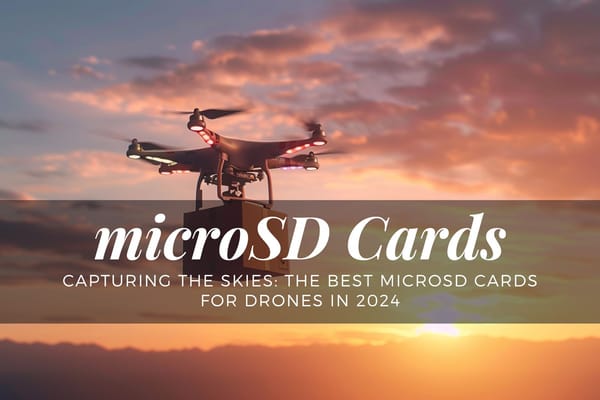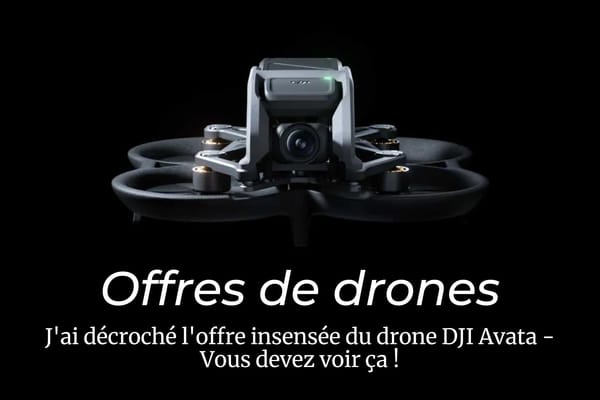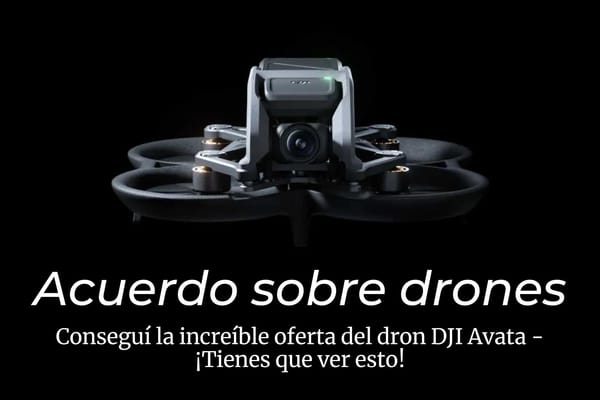Can You Use a Drone to Hunt Deer? Exploring Legal and Ethical Considerations
Explore the legality and ethics of using drones in deer hunting with our insightful post. Discover state-specific rules and the impact on traditional hunting practices in 'Can You Use a Drone to Hunt Deer?'

Drones, with their soaring popularity, have found a unique intersection with outdoor activities, including deer hunting. But, can you use a drone to hunt deer? This question stirs both intrigue and controversy among hunting enthusiasts.
Introduction
Overview of Drones in Deer Hunting
Key Takeaways
Summary of Main Points
Part 1: Legal Aspects of Using Drones in Deer Hunting
State-Specific Regulations on Drone Usage for Hunting
Federal and Local Regulations Impacting Drone Use in Hunting
Legal Consequences of Using Drones in Hunting
Continue Exploring the Debate
Transition to Ethical Considerations
Part 2: Ethical and Practical Considerations
Ethical Debates Surrounding Drone Use in Hunting
Impact on Wildlife and Fair Chase Principles
Alternative and Traditional Scouting Methods
Conclusion
Final Thoughts and Summary
Can You Use a Drone to Hunt Deer?
Key Takeaways
- Understanding state-specific laws is crucial for drone use in deer hunting.
- Federal regulations and local laws significantly impact drone utilization in hunting.
- Legal consequences of improper drone use in hunting can be severe.
Part 1: Legal Aspects of Using Drones in Deer Hunting
In the realm of hunting, drones have emerged as a topic of heated debate. They offer a bird's-eye view of terrains, potentially transforming how hunters scout and track deer. However, the legal landscape for using drones in deer hunting is complex and varies significantly from state to state.
State-Specific Regulations on Drone Usage for Hunting
In the United States, only a handful of states permit the use of drones for hunting. These states include Colorado, Alaska, Texas, Montana, Idaho, and North Dakota, each with its specific limitations and guidelines. For instance, in Colorado, drones are allowed for scouting but not during the actual hunt. Michigan stands out with some of the strictest laws, explicitly prohibiting the taking of game, including deer, using unmanned devices.
Understanding these nuances is vital for hunters who might consider integrating drones into their hunting strategy. For detailed information on drone regulations, hunters can refer to the FAA's official website.
Federal and Local Regulations Impacting Drone Use in Hunting
The Federal Aviation Administration (FAA) plays a pivotal role in regulating drone use. These regulations, including flying drones within line of sight and away from controlled airspace, are critical for hunters to follow. However, local laws can also influence drone usage. Some areas may have additional restrictions or allowances not covered under federal law. It's a legal tapestry that requires careful navigation to ensure compliance.
Legal Consequences of Using Drones in Hunting
Using a drone in violation of state or federal laws can result in significant penalties. Fines, loss of hunting privileges, and even legal proceedings are potential consequences for illegal drone usage in hunting. Recent cases highlight the seriousness with which authorities treat these violations, emphasizing the need for hunters to be well-informed and cautious.
The use of drones in deer hunting is more than just a legal matter; it dives deep into the ethics and practices that have defined hunting for generations. As we turn the page to Part 2, we delve into the ethical implications and practical considerations of employing drones in the pursuit of deer. What does it mean for the future of hunting? How does it affect the sport’s integrity and the wildlife we cherish?
Part 2: Ethical and Practical Considerations
While understanding the legal framework is essential, grappling with the ethical and practical aspects of using drones in deer hunting is equally important. The integration of technology into traditional hunting practices brings forth a set of moral dilemmas and practical challenges.
Ethical Debates Surrounding Drone Use in Hunting
The core of the ethical debate centers on whether using drones in hunting aligns with the principles of fair chase. Advocates for traditional hunting argue that drones could provide an unfair advantage, potentially disrupting the balance between hunter and prey. This concern is echoed by hunting ethics organizations, which emphasize the importance of maintaining a level of skill and sportsmanship in hunting. Conversely, proponents of drone usage in hunting argue for the efficiency and enhanced tracking capabilities they offer. This ongoing controversy sparks diverse opinions within the hunting community.
Impact on Wildlife and Fair Chase Principles
Using drones can inadvertently affect wildlife behavior. The noise and presence of drones might disturb the natural movements and habitats of deer, raising concerns about the long-term impact on wildlife populations. Fair chase, a concept deeply ingrained in ethical hunting, is potentially compromised when technology tips the scales too heavily in favor of the hunter. The debate here is not just about legality but about preserving the integrity of hunting as a sport and a tradition.
Alternative and Traditional Scouting Methods
In light of these ethical considerations, many hunters turn to traditional scouting methods. These include using binoculars, trail cameras, and tracking wildlife signs - methods that have been honed over generations and are seen as integral to the hunting experience. While technology undoubtedly plays a role in modern hunting, striking a balance where it complements rather than replaces traditional skills is a viewpoint many in the hunting community share.
In conclusion, the use of drones in deer hunting is a multifaceted issue encompassing legal, ethical, and practical dimensions. Whether integrating this technology into hunting practices is appropriate remains a topic of debate. Hunters are encouraged to weigh these considerations carefully, abide by the laws, and respect the principles of ethical hunting.
For further exploration of ethical hunting practices, consider visiting the National Deer Association.


